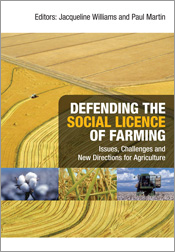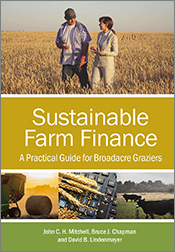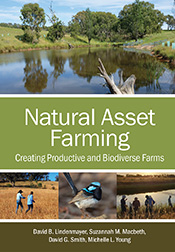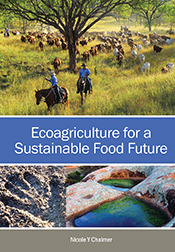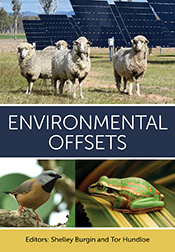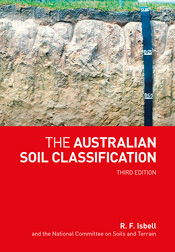Defending the Social Licence of Farming
Issues, Challenges and New Directions for Agriculture
Edited by: Jacqueline Williams, Paul MartinThe authors document the definition of and issues associated with the 'social licence to farm'.
Issues including climate variability, water scarcity, animal welfare and declining biodiversity have led to increasing demands on farmers to conduct and communicate their farming practices so as to protect their ‘social licence to farm’. Farmers are increasingly expected to demonstrate their social and environmental responsibility as a pre-condition to being allowed to carry out their preferred farming and commercial practices. Current examples include the live animal export trade, battles over protection of aquifers from mining, and contests over rural carbon emissions. + Full description
In Defending the Social Licence of Farming, authors from Australia, the USA, Europe and Iceland document the diverse issues associated with the 'social licence to farm'. They provide examples of different sectors’ strategies and experiences, and give specific indications of what is involved in coping successfully with this political and legal dimension of farming.
As resources become scarce and society’s expectations more diverse and demanding, farming can expect that social licence issues will become both more difficult and more important. The book suggests that the old models of response, largely focused on defensive positions, will often be insufficient to protect the interests of both farmers and the community. This book will provide a useful stimulus for innovation and proactive policies to defend the social licence of the farm sector.
- Short descriptionNews
This title is no longer available in print format, but can still be purchased as an eBook via the eRetailer links above.
Reviews
"The book covers the field well, although with considerable overlap between chapters, but the final chapter (and an excellent Preface) pulls the material together into a very readable overview. It would also provide material for students of rural planning by using individual chapters for group discussion, or for application to live case studies."
Mike Daw, Experimental Agriculture, Volume 48 (3), Cambridge University Press 2012
Details
ePDF | November 2011ISBN: 9780643104549
Publisher: CSIRO Publishing
Available from eRetailers
ePUB | November 2011
ISBN: 9780643104556
Publisher: CSIRO Publishing
Available from eRetailers
Features
- Explains why Social Licence is an important issue for the rural sector
- Identifies the international drivers that are demanding farmers demonstrate sustainable management and production of safe, clean food
- Presents case studies within Australia and elsewhere
- Identifies the issues, directions and challenges for the rural sector
- Provides recommendations for future directions
Contents
Scene setting1 What is meant by the social licence?
Paul Martin and Mark Shepheard
2 Understanding the social obligations of farmers
Claudia Baldwin
3 The role of virtue in natural resource management
Adrian Walsh and Mark Shepheard
Experience of farmers
4 Organic poetic licence: consumer moral norms driving farming systems
Andrew Monk
5 Triple bottom line reporting in the irrigation sector
Evan Christen, Mark Shepheard, Wayne Meyer and Christopher Stone
6 Social licence issues in developing economies
Donna Craig and Michael Jeffery
7 Retaining the social licence: the Australian cotton industry case study
Guy Roth
View the full table of contents.
Authors
Jacqueline Williams is a post-doctoral research fellow at the Australian Centre for Agriculture and Law since 2007. She has over 20 years' experience in natural resource management in Australia having worked at local, regional, state and national levels encompassing forestry, catchment management and community based natural resource management (NRM). Her areas of expertise include regional NRM systems; NRM institutions and governance; translation and harmonisation of regional NRM to the property scale through Property Management Systems; and NRM policy development and implementation, in particular land use, biodiversity and water quality.Paul Martin is the Director of the Australian Centre for Agriculture and Law at the University of New England. Paul has extensive experience in the law and in commerce, working closely with primary industry bodies. He has been a corporate lawyer and strategic consultant in the wine industry, horticulture and (in more recent times) as a researcher in water law and policy. He leads an international research team focused on the future design of natural resource management laws and institutions. He has an extensive list of publications and contributions to public policy, and is well recognised internationally for his scholarship on laws, institutions and the primary industry sector.

